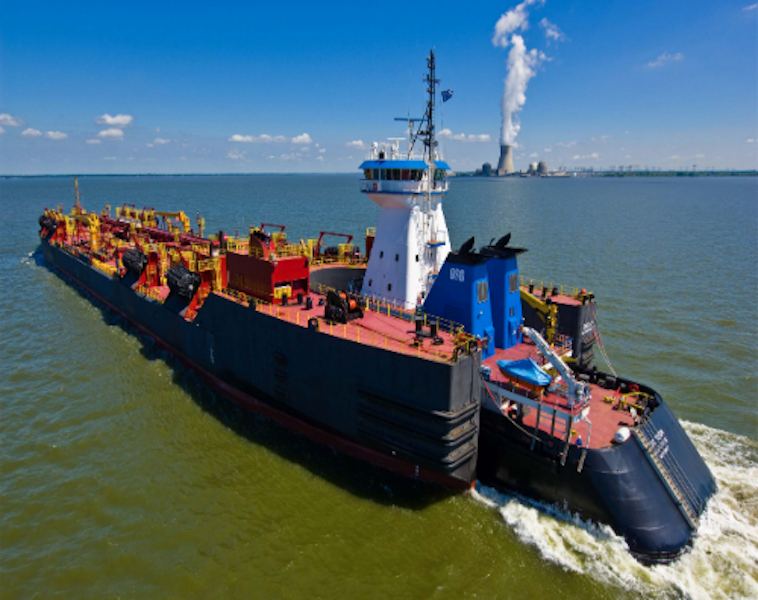The Jones Act coastwise sector has “reached a point of equilibrium.” That message was delivered by Sam Norton, CEO of Overseas Shipholding Group, at the Marine Money Ship Finance Forum held in Manhattan yesterday. Norton added that he was “seeing some optimism” in the sector.
Tampa, Fla.-based OSG is the U.S.-flag component of the old OSG, which underwent a financial restructuring following its 2012 bankruptcy filing and split into a domestic and a foreign component.
Seventeen of OSG’s 21 vessels are engaged in the Jones Act trades. The company operates 17 tankers and four ATBs, with three of the tankers foreign flagged. Of the Jones Act fleet, the tankers are all about 600’ with a capacity of approximately 340,000 bbls. Two of the ATBs have capacities of 352,000 bbls. and two are 240,000 bbls. Two more 240,000-bbl. ATBs are under construction at Gunderson Marine and will be delivered in 2020.
At the forum, Norton said refined transportation fuels loaded in Texas and Louisiana for discharge in Florida were the mainstay Jones Act tanker trade up until 2011–2012. That’s when shale oil came on the scene. At the time, the market saw the growth in coastwise shipments of crude oil (helped along by a high “spread” in the price of Brent Oil versus WTI, which made transatlantic imports relatively more expensive). As shipping markets do, the response was a newbuild program which led to a 30% increase in vessel supply. Following the lifting of restrictions on crude oil exports, the Jones Act coastwise crude market evaporated.
Fast forward to late 2019, and Norton and OSG have a much more favorable outlook for the Jones Act coastwise sector. In the background is the widening of the spread, where the cost of oil imported from Europe is relatively more expensive than oil shipped coastwise. The price advantages of U.S. oil have opened up, he said. As the market for its vessels has brightened, OSG has engaged in financial initiatives with insurance companies providing term debt to the ship owner.
Norton said that the patient long-term approach of these funds providers was a good match to the steady patterns of cash inflows. These funds providers, which he dubbed “patient money,” all “recognize the stability of industrial shipping.”
Norton said that rather than trying to predict the future, it was more important for management to adapt to changing circumstances in a complicated business. He also stressed the importance of reducing G&A expenses, with such reductions providing what amounts to “free capital in a capital intensive business.”




